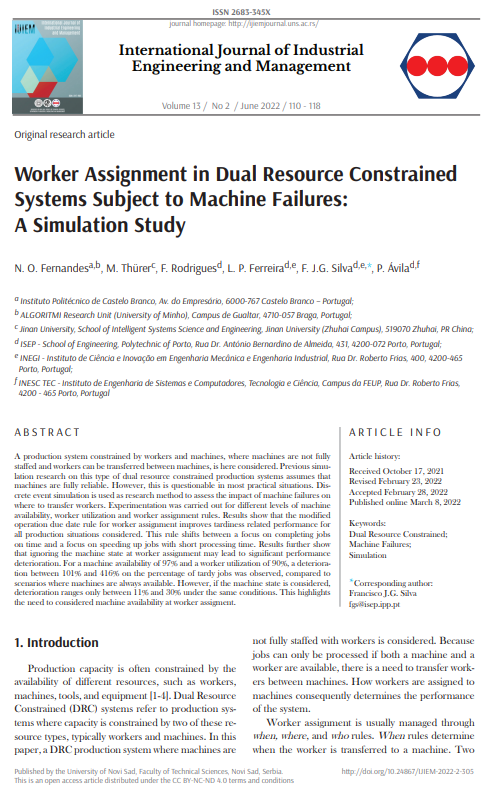Worker Assignment in Dual Resource Constrained Systems Subject to Machine Failures: A Simulation Study

Published 2022-06-30
abstract views: 82 // FULL TEXT ARTICLE (PDF): 0
Keywords
- Dual Resource Constrained,
- Machine Failures,
- Simulation
How to Cite
Copyright (c) 2023 International Journal of Industrial Engineering and Management

This work is licensed under a Creative Commons Attribution 4.0 International License.
Abstract
A production system constrained by workers and machines, where machines are not fully staffed and workers can be transferred between machines, is here considered. Previous simulation research on this type of dual resource constrained production systems assumes that machines are fully reliable. However, this is questionable in most practical situations. Discrete event simulation is used as research method to assess the impact of machine failures on where to transfer workers. Experimentation was carried out for different levels of machine availability, worker utilization and worker assignment rules. Results show that the modified operation due date rule for worker assignment improves tardiness related performance for all production situations considered. This rule shifts between a focus on completing jobs on time and a focus on speeding up jobs with short processing time. Results further show that ignoring the machine state at worker assignment may lead to significant performance deterioration. For a machine availability of 97% and a worker utilization of 90%, a deterioration between 101% and 416% on the percentage of tardy jobs was observed, compared to scenarios where machines are always available. However, if the machine state is considered, deterioration ranges only between 11% and 30% under the same conditions. This highlights the need to considered machine availability at worker assigment.
Article history: Received (October 17, 2021); Revised (February 23, 2022); Accepted (February 28, 2022); Published online (March 8, 2022)

